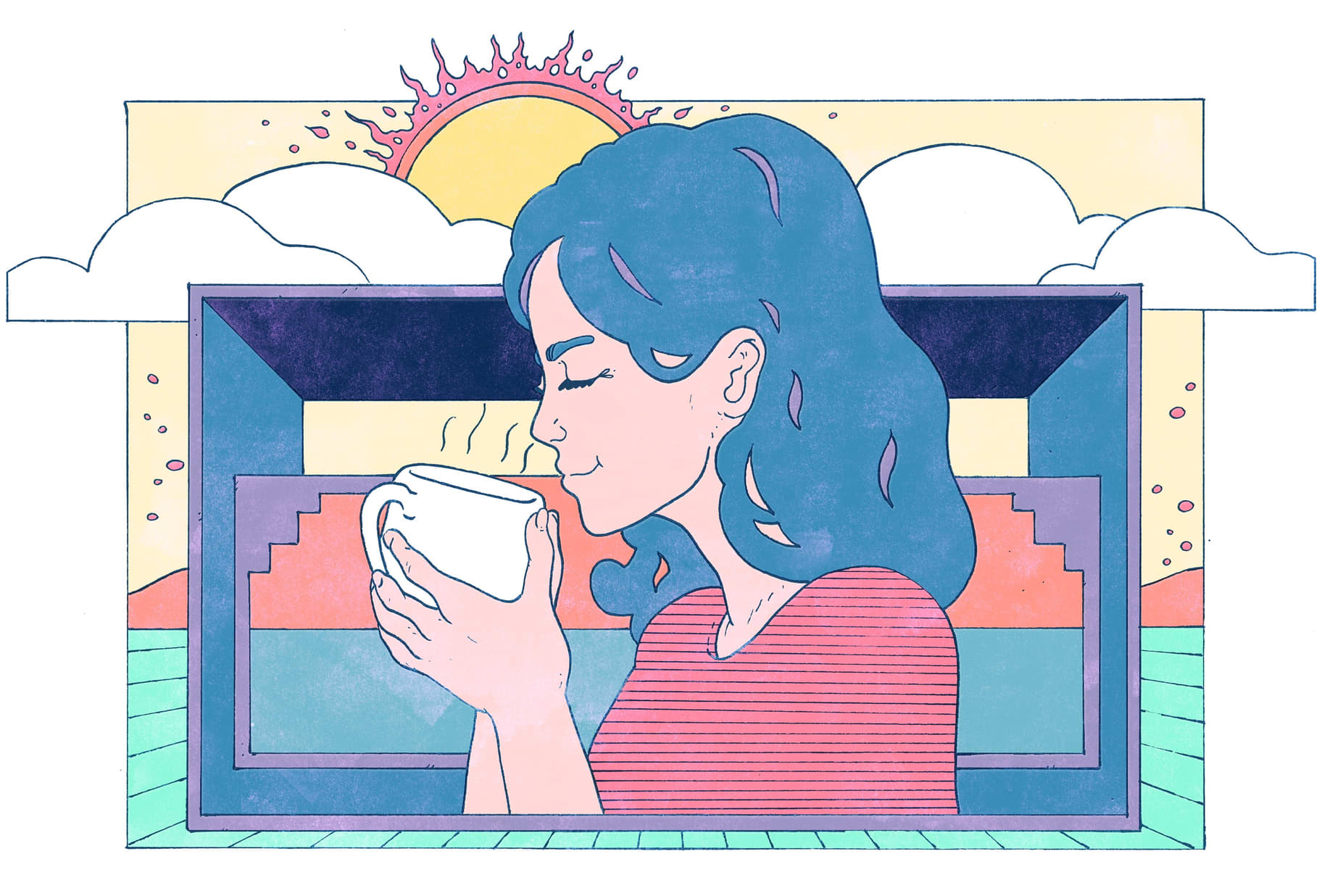6 Ways To Wake Up Happier And More Alert
Coaching
These simple, expert-backed habits will help you start your day with more energy.
Last updated: 30 November 2020

Incorporate these simple, expert-backed habits into your wake-up routine, in this order, to start your day with more energy and motivation.
- Set Your Alarm For the Same Time Every Day
Say you normally wake up at 7 but sleep in until 10 on weekends. Come Sunday night, you have to drag your body's internal clock back three hours, says Matthew Walker, PhD, the founder and director of the Center for Human Sleep Science and a Nike Performance Council member. "It's the equivalent of flying back and forth from San Francisco to New York every weekend, or what we call 'social jetlag'", Walker says. "It's torture on your biology". Having a consistent wake-up time will fine-tune your body's natural circadian rhythm, he says, and help you feel more alert. - Wake Up to Music
Using a song as your alarm can help you feel sharper in the morning than waking up to a jarring noise does, according to a recent study conducted by the Royal Melbourne Institute of Technology (RMIT) in Australia. "We think that a harsh 'beep beep beep' might work to disrupt or confuse our brain activity when waking, while a more melodic sound may help us transition to a waking state in a more effective way", said study co-author and RMIT associate professor Adrian Dyer in a press release. Although more research is needed to know the precise combination of melody and rhythm that works best, the researchers think that any song is probably better than a blaring alarm. - Don't Hit Snooze
While punching that button may feel good in the moment, it's not doing your body or brain any good, says Cheri Mah, MD, a physician scientist at the UCSF Human Performance Center and a Nike Performance Council member who specialises in sleep and performance in elite athletes. "You're just breaking up extra sleep that could have been consolidated until the time you're actually going to wake up". That time is crucial, says Mah: "The early-morning hours are when you're getting the most rapid-eye-movement sleep, which is important for memory consolidation". - Take a Few Breaths
What's the first thing most people do after opening their eyes? Grab their phone to check emails, notifications and the news. "This immediate sense of urgency produces a lightning bolt of cortisol, the stress hormone, cruising through the body and brain", says New-York-based clinical psychologist Belisa Vranich, PsyD. The solution Vranich recommends in her new book, Breathing for Warriors: Interrupt the stress response. After you wake but before you get out of bed, take three diaphragmatic breaths by slowly inhaling through your nose, allowing your abdomen to expand, then slowly exhaling through your mouth. These deep, calming breaths will help shift your body from a sympathetic response ("fight or flight") to a parasympathetic one ("rest and digest") and set a calm tone for the day. - Think of One Thing You're Grateful For
By beginning the day with an attitude of gratitude, you can set yourself up to feel better all around. When you wake up, think of something you're looking forward to—it could be that you're about to work out, the sun's out or it's Friday. According to research published in the journal Personality and Individual Differences, being psychologically healthy can have a positive effect on physical health. And people who stop to appreciate what they have are more inclined to stick to their health goals and seek help for health concerns than others are. - Drink Something Warm
To initiate good sleep, your body temperature needs to drop by about 2 to 3 degrees. "It's the reason that you will always fall asleep better in a room that's too cold than one that's too hot", says Walker. Conversely, when you wake up, your body needs to warm up to become more alert. "If you have an automated thermostat, aim to warm your room by a couple of degrees about 30 minutes before you're set to wake up", he recommends. If you don't have a smart thermostat, Walker says that sipping something hot—water, tea or coffee—can provide a similar effect.